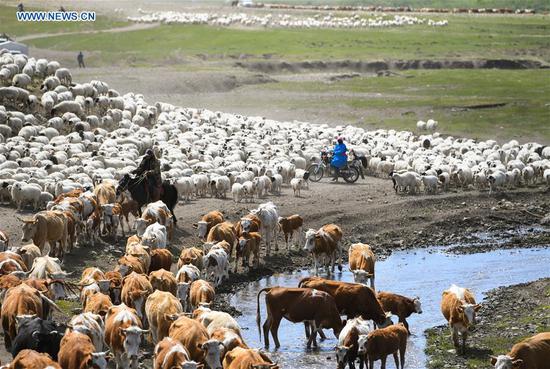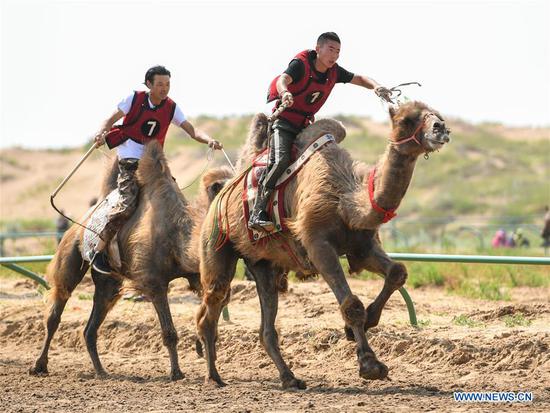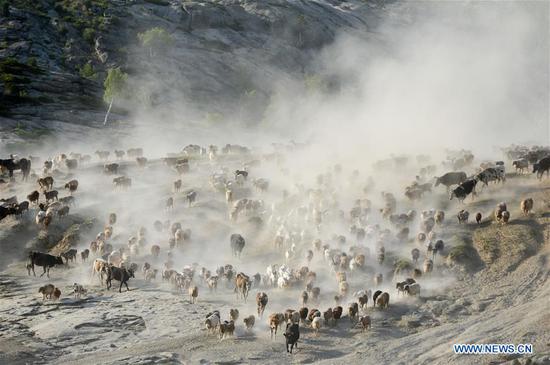
A female Yunnan snub-nosed monkey and her two infants are seen in the Baima Snow Mountain Nature Reserve in Yunnan province. (Wang Changshan / Xinhua)
Cooperation by governments, researchers and locals helps flagship species escape extinction
As the black-and-white Yunnan snub-nosed monkeys (Rhinopi thecusbieti) call out to each other, Yu Jianhua can tell the different emotions in each of their calls.
He can also recognize by sight each of the 68 monkeys, also known as Yunnan golden hair monkeys, under his care.
"They are my family," said the 67-year-old monkey ranger of 22 years. "I'm with them every day."
Yu, who is from the Lisu ethnic group, works deep in the remote mountains of Southwest China's Yunnan province around his home in Xiangguqing village, Weixi county, a nine-hour drive from the provincial capital, Kunming.
Protecting with care
Yu used to be a hunter. In 1997, the local forestry authority persuaded him to stop hunting and become a ranger.
"My grandfather told me that the Yunnan golden hair monkeys were considered human ancestors in Lisu tales," Yu said. "We must protect them."
Yu was paid 180 yuan a month at first, but he now earns around 1,600 yuan ($232).
It is not an easy job for the 40 or so full-time monkey rangers in Weixi.
They work two shifts, and each ranger patrols the forest for more than 10 hours every day at altitudes ranging from 3,000 to 3,400 meters.
The rangers avoid walking the same route each time in order to protect the vegetation, said Zhong Tai, director of the Weixi county nature reserve department.
"Sometimes our rangers need to stay overnight in the forest if the patrol goes past midnight," Zhong said.
The Yunnan snub-nosed monkeys around Xiangguqing village are part of an estimated population of 2,000 in the Baima Snow Mountain Nature Reserve.
Covering 2,816 square kilometers, the reserve is home to 87 species of animals.
As one of the world's most endangered primates, the Yunnan snub-nosed monkey is considered a bellwether species for biodiversity in the high-altitude region.
Local poachers drove them close to extinction in the 1980s, but the number has since risen above 3,000 nationally thanks to the joint efforts of governments, researchers and local villagers.


















































